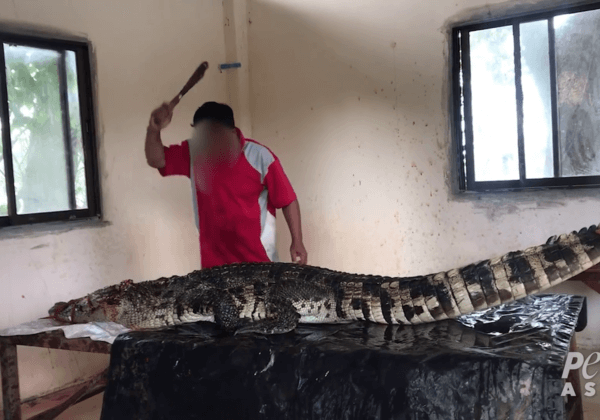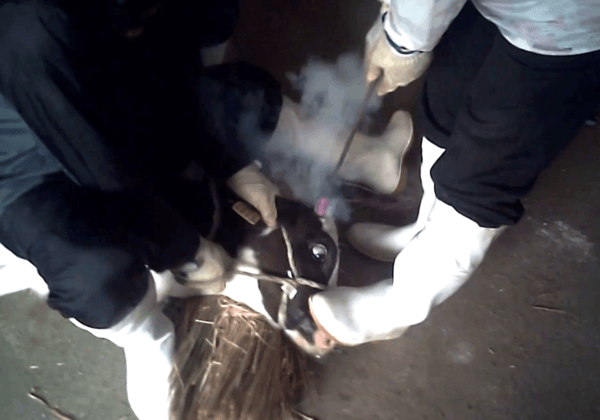Born-Again Vegan
Coming from both Welsh and Moroccan backgrounds, I was raised with two completely different ideas of what was the “right” relationship that humans should have with other animals. During the years that I lived in Morocco, it became routine for me to bring home sick or injured animals that I had found on the street. My mother, a Moroccan woman who believed that animals should not be part of a family unit, was genuinely worried that I would never grow out of my love for animals. Spoiler: I didn’t. Sorry, Mom! Soon, we were caring for every animal I could find—cats and dogs and also rats, lizards, goats, and bantams all freely roamed through our home. Again—sorry, Mom!

Morocco
Not only was vegetarian eating practically unheard of in Morocco, at that time, if you didn’t eat meat, you were also basically tightening the straps on the straightjacket and walking yourself into the padded room. Despite this, I stopped eating meat when I was about 8 years old. (I still haven’t told my grandmother that I have since turned vegan—the fear that she would burst into flames is real!)
People really didn’t understand why I was doing it, and I think they were generally a bit freaked out by the idea. Because they weren’t ready to accept vegetarianism, they argued against it—a lot. Flashbacks to times when I had to run away from family members who were trying to force-feed me tagine while claiming that chicken isn’t meat still haunt me. Friends and family finally got beyond the denial stage and realized that my stance wasn’t merely a “phase.” That ended the “You should be grateful for the food on your plate” and “God put them here for a reason” debates. (Yes, God put all living beings here for us to destroy—how could I not see it?)
It wasn’t a documentary or a life-changing moment that made me stop eating meat, so I didn’t really have any facts about the appalling meat industry or anything to show that backed up my position. All I knew was that I didn’t have the same capacity as everyone else to ignore the cruelty inherent in turning the living beings I loved so much into flesh on a plate. The people of Morocco are so inherently giving and self-sacrificing, so I have always claimed that their heavy consumption of meat is attributable to a lack of education about animals. Meat is such a regular part of Moroccan culture that the people have simply desensitized themselves to the disturbing reality of slaughtering and consuming animals.

Children in Marrakesh
Although I didn’t see it at the time, my first steps toward working for animal rights were thanks to a beautiful stray cat, later named Tiger. Schools attracted cats in the area because kids often threw them scraps of food. Our school was no different, but there was one cat, in particular, who had me head over heels. I remember coming into school one day to find that she had a leg injury, but because we were friendly, I saw no reason not to take her to my vet. Knowing that my mother was on the verge of kicking me and all the animals in our home out, I had been contemplating what to do with her. Then one of my teachers (and a fellow animal lover) decided to adopt her! I guess that’s when it all started—a friend and I began to trap cats in order to take them to the vet for de-sexing and medical care. Then we would either release them where they had been found or find them homes.

It wasn’t until I moved to London that I found out about PETA. I was mindlessly scrolling through Facebook when I saw a video in which Olivia Munn exposed the cruelty of Chinese fur farms. Even though I had never worn fur, it really opened my eyes and forced me to think about everything we wear. Around this time, I had also started to become really interested in herbal remedies (and I know what you’re thinking—a crazy vegan witch doctor, as if I haven’t heard that one before), but I was more interested in the impact that our food choices have on our bodies. I wasn’t eating refined sugars and had stopped drinking milk, but my friends kept saying, “Milk is good for you—you need it for calcium,” so I did a little research into it and realized that milk is actually not good for you at all.
By this time, I wasn’t eating meat, drinking milk, or wearing animal skins but still hadn’t become a full vegan. I’m not sure why I hadn’t, but when I looked into the PETA website a little more and decided to apply for an internship there (where, out of respect for animals and the working environment, you were advised to follow a vegan lifestyle), I realized how hypocritical I had been. I had been acting as the town crier when it came to spreading awareness of animal welfare, but I hadn’t actually been practicing what I preached. By consuming animal-derived foods, I had still been supporting industries in which calves are torn away from their mothers, animals are artificially inseminated, male chicks are butchered, and so many other atrocities occur. In short, I had been supporting the abuse of defenseless animals.
Although it took me a while to get there, following a vegan lifestyle to avoid all cruelty to animals is the best and easiest decision that I have ever made and one that was necessary for me in order to help animals. Working with and for animals was something that I knew I had to do from a very young age in order to stand up for my beliefs and against cruelty.

Written by former PETA Asia Intern Cassy Lloyd








